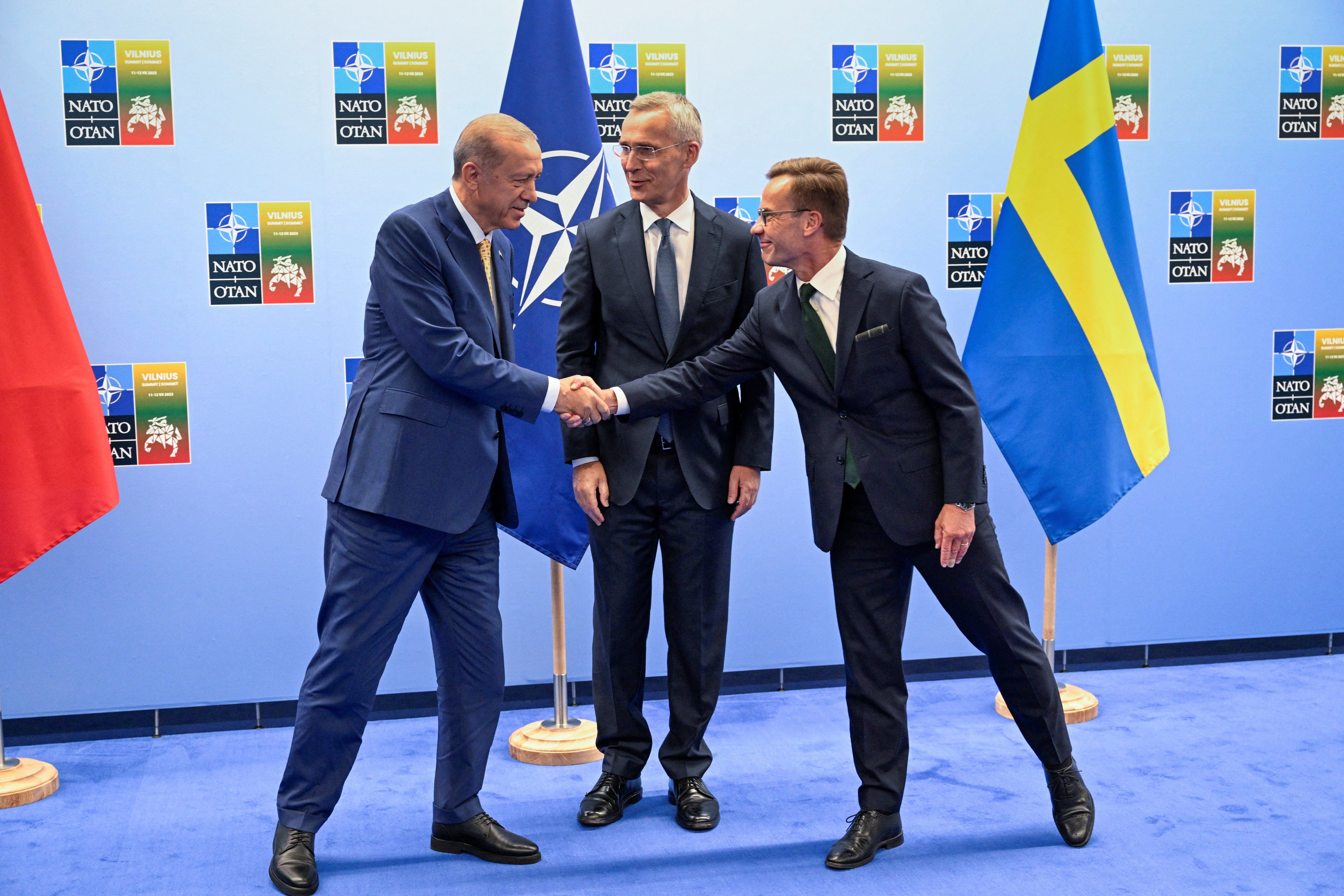One of the biggest questions hanging over the NATO summit this week in Vilnius has already been answered: Turkey’s President Recep Tayyip Erdogan agreed on Monday to remove his block on Sweden’s bid to join the alliance. The fear created by Russia’s invasion of Ukraine led Finland to join the alliance in April, bringing NATO to 31 members. Sweden will now make it 32.
Erdogan had opposed Sweden’s path over complaints that Stockholm had given sanctuary to Kurds he considers terrorists. Some analysts have speculated that Turkey’s president would drop objections in exchange for the right to purchase F16 fighter jets from the United States. We’ll see now whether that deal goes through.
The other question looming over the summit is whether Ukraine might win a promise to make Ukraine member no. 33. US President Joe Biden has already taken immediate membership off the table, at least for now, with the argument that NATO can’t accept a member at war. We understand, said Ukraine’s president Volodymyr Zelensky on Monday, “but we need a clear signal, and this signal is needed right now.”
This larger question of how NATO leaders will use the event to signal not just open-ended military and financial support for Ukraine – but also a concrete path to future membership – will be closely watched in Russia, Europe, and the US.
